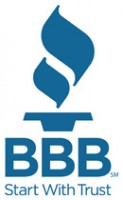 Nashville, TN – This winter’s spike in COVID-19 Coronavirus cases has more people than ever looking for tests. This has given rise to a new con: phony websites and fake in-person testing sites used to collect personal and insurance information.
Nashville, TN – This winter’s spike in COVID-19 Coronavirus cases has more people than ever looking for tests. This has given rise to a new con: phony websites and fake in-person testing sites used to collect personal and insurance information.
You search online for a COVID-19 Coronavirus test in your area. Several websites appear, and you choose a testing clinic affiliated with a local pharmacy or a pop-up run by a local group.
In one version of this scam, you show up at the testing site. Before you can get a test, the person working there requires you to fill out a form with personal information and take a picture of your driver’s license and medical insurance cards. Then, they do a swab and promise test results within a short time. Unfortunately, the test is fake and the results never arrive. It was an excuse to get your information.
One victim reported to BBB Scam Tracker this experience at a phony testing site: “Not until I got home did I realize I provided WAY too much personal information… They used a swab of saliva and said I would be notified by email within 24 hours. It has now been 2 weeks no results, and they are still there doing covid tests.”
How to avoid shipping scams:
- Understand the COVID-19 testing options in your area. The U.S. Centers for Disease Control and Prevention reminds consumers that no-cost COVID-19 tests are available to everyone in the U.S. at health centers and select pharmacies. If someone insists you pay for a test, especially if they claim it will cost you hundreds of dollars, it’s a scam.
- Only get tested at authorized testing sites or health centers. Visit your state, tribal, local, or territorial health department’s website to find an authorized testing site in your area. In Canada, get information about testing for your province.
- Watch out for lookalike websites. Scammers have become adept at creating websites that look just like websites belonging to well-known, trusted businesses. Before entering your personal information to an online form, make sure the website you are visiting is secure and there are no misspellings or unfamiliar names in the URL bar.
- Be wary of unsolicited callers and messages. No legitimate company or health clinic will call, text, or email you without your permission. If you get an unsolicited message from someone, it’s best not to give the caller or sender any personal details before confirming it’s from a legitimate source.
For More Information
Read about other popular COVID-19 scams and additional testing scams. Also, learn about other ways scammers are taking advantage of the pandemic with vaccine scams and government agency impostors.
If you’ve spotted a scam (whether or not you’ve lost money), report it to BBB.org/ScamTracker. Your report can help others avoid falling victim to scams. Find more information about scams and how to avoid them at BBB.org/AvoidScams.



